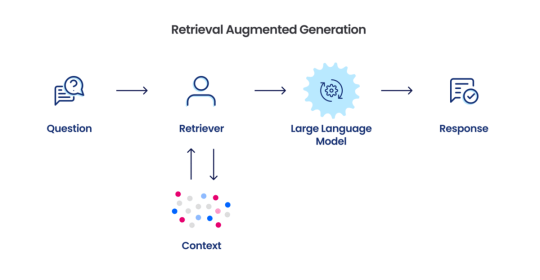Fast, Accurate, Production-Ready AI Turn your unstructured data into perfectly optimized vector search indexes, purpose-built for Retrieval Augmented Generation.https://vectorize.io/
Don't wanna be here? Send us removal request.
Text
What are the challenges of retrieval augmented generation?

Retrieval Augmented Generation (RAG) represents a cutting-edge technique in the field of artificial intelligence, blending the prowess of generative models with the vast storage capacity of retrieval systems.
This method has emerged as a promising solution to enhance the quality and relevance of generated content. However, despite its significant potential, RAG faces numerous challenges that can impact its effectiveness and applicability in real-world scenarios.
Understanding the Complexity of Integration
One of the primary challenges of implementing RAG systems is the complexity associated with integrating two fundamentally different approaches: generative models and retrieval mechanisms.
Generative models, like GPT (Generative Pre-trained Transformer), are designed to predict and produce sequences of text based on learned patterns and contexts. Conversely, retrieval systems are engineered to efficiently search and fetch relevant information from a vast database, typically structured for quick lookup.
The integration requires a seamless interplay between these components, where the retrieval model first provides relevant context or factual information which the generative model then uses to produce coherent and contextually appropriate responses.
This dual-process necessitates sophisticated algorithms to manage the flow of information and ensure that the output is not only accurate but also maintains a natural language quality that meets user expectations.
Scalability and Computational Efficiency
Another significant hurdle is scalability and computational efficiency. RAG systems need to process large volumes of data rapidly to retrieve relevant information before generation. The "best embedding model" used in these systems must efficiently encode and compare vectors to find the best matches from the database.
This process, especially when scaled to larger databases or more complex queries, can become computationally expensive and slow, potentially limiting the practicality of RAG systems for applications requiring real-time responses.
Moreover, as the size of the data and the complexity of the tasks increase, the computational load can become overwhelming, necessitating more powerful hardware or optimized software solutions that can handle these demands without compromising performance.
Data Quality and Relevance
The effectiveness of a RAG system heavily relies on the quality and relevance of the data within the retrieval database. Inaccuracies, outdated information, or biases in the data can lead to inappropriate or incorrect outputs from the generative model.
Ensuring the database is regularly updated and curated to reflect accurate and unbiased information poses a considerable challenge, especially in dynamically changing fields such as news or scientific research.
Balancing Creativity and Fidelity
A unique challenge in RAG systems is balancing creativity with fidelity. While generative models are valued for their ability to create fluent and novel text, the addition of a retrieval system focuses on providing accurate and factual content.
Striking the right balance where the model remains creative but also adheres strictly to retrieved facts requires fine-tuning and continuous calibration of the model's parameters.
Ethical and Privacy Concerns
With the ability to retrieve and generate content based on vast amounts of data, RAG systems raise ethical and privacy concerns. The use of personal data or sensitive information within the retrieval database must be handled with strict adherence to data protection laws and ethical guidelines.
Ensuring that these systems do not perpetuate biases or misuse personal information is a challenge that developers and users alike must navigate carefully.
Conclusion
Retrieval-Augmented Generation represents a significant advancement in the field of AI, offering the potential to create more accurate, relevant, and context-aware systems. However, the challenges it faces—from integration complexity and scalability to ethical concerns—require ongoing attention and innovative solutions. As research and technology continue to evolve, the future of RAG looks promising, albeit demanding, as it paves the way for more intelligent and capable AI systems.
1 note
·
View note